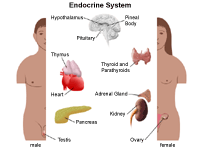Thymus Cancer: Frequently Asked Questions
Thymus Cancer: Frequently Asked Questions
What is thymus cancer?
Thymus cancer is a rare type of cancer.
It happens when cancer cells form in a tiny organ called the thymus. Many thymus cancers are curable, especially if found early. Sometimes, healthcare providers can also treat later stage tumors successfully.
Healthcare providers identify different types of thymus tumors by the way they look under a microscope. There are two main types of thymus tumors: thymomas and thymic carcinomas. Other rare types of thymus tumors include thymic carcinoids and sarcomas.
What is the thymus?
The thymus is a small organ in the front part of the chest under the breastbone. It stretches from the lower neck to above the level of the heart. During development in the uterus and during childhood, the thymus makes a type of white blood cells called T-lymphocytes. These are important to the immune system. They grow in the thymus, and then travel to the lymph nodes where they help protect the body against infections.
Who gets thymus cancer?
Thymus cancer is rare. Men and women are equally likely to develop a tumor in the thymus. Thymus cancers are most commonly diagnosed in people who are in their 70s, but can be diagnosed at any age.
What are the risk factors for thymus cancer?
There is no way to know for sure if a person is going to get thymus cancer. And there is no known way to prevent it. Certain factors can make one person more likely to get a certain type of cancer than another person. These are called risk factors. At this time, healthcare providers do not definitely know of any risk factors for thymus cancer. Some studies have suggested a link between exposure to radiation in the upper chest area and thymus cancer. This has not been proven.
What are the symptoms of thymus cancer?
People with thymus tumors do not usually have symptoms until the tumor is big enough to press against air passages, blood vessels, or other structures in the area of the thymus. This, in turn, may cause shortness of breath, cough, trouble eating, and swelling in the face and arms. Many people with thymus tumors also develop autoimmune diseases, such as myasthenia gravis. This can cause a variety of different symptoms.
How does a healthcare provider diagnose thymus cancer?
A healthcare provider will ask questions about a person's medical and family history. The healthcare provider will also do a physical exam to check for signs of cancer. He or she may order one or more of these tests to help make the diagnosis:
Chest X-ray
CT scan
MRI
Positron-emission tomography (PET) scan
Blood tests
Biopsy (removing either a piece of the tumor or the entire thymus to be looked at under a microscope)
Should everyone with thymus cancer get a second opinion?
Many people with cancer get a second opinion from another healthcare provider. Here are some of the reasons to get one:
Not feeling comfortable with the treatment decision
Being diagnosed with a rare type of cancer, such as cancer in the thymus
Having several choices for how to treat the cancer
Not being able to see a cancer expert
Many people with thymus cancer have a hard time deciding which treatment to choose. It may help to have a second healthcare provider review the diagnosis and treatment choices before starting treatment. It is important to remember that in most cases, a short delay in treatment will not lower the chance that the treatment will work. Some health insurance companies even require that a person with cancer seek a second opinion. Many other companies will pay for a second opinion if asked.
How can I get a second opinion?
There are many ways to get a second opinion:
Ask your primary healthcare provider. He or she may be able to suggest a specialist. This may be a surgeon, medical oncologist, or radiation oncologist. Sometimes these healthcare providers work together at cancer centers or hospitals.
Call the National Cancer Institute's Cancer Information Service. The number is 800-4-CANCER (800-422-6237). This service has information about treatment facilities, such as cancer centers and other programs supported by the National Cancer Institute.
Look for other choices. Check with a local medical society, nearby hospital or medical school, or a support group to get names of healthcare providers who can give you a second opinion. Or ask other people who've had cancer for their recommendations.
How do healthcare providers treat thymus cancer?
Healthcare providers may treat thymus cancer with surgery, radiation, or chemotherapy. A person may have just one treatment or a combination of treatments. Surgery to remove the thymus is typically part of the treatment whenever possible.
What's new in thymus cancer research?
Cancer research should give you hope. Healthcare providers and researchers around the world are learning more about what causes thymus cancer, and are looking for and studying ways to prevent it. They are also finding better ways to treat this cancer.
Scientists are also studying the aggressiveness of each kind of tumor, so that healthcare providers can choose the right treatment for each person.
What should I know about clinical trials for thymus cancer?
Clinical trials are studies of new kinds of cancer treatments. Healthcare providers use clinical trials to learn about new treatments and their side effects. Promising treatments are ones that work better or have fewer side effects than the current treatments. People who participate in these studies get to use treatments before the FDA approves them. The FDA does not approve treatments until after the trials, when the side effects and benefits are known. People who join clinical trials also help researchers learn more about cancer and help people who get cancer.
Updated:
March 21, 2017
Reviewed By:
Alteri, Rick, MD,Gersten, Todd, MD
